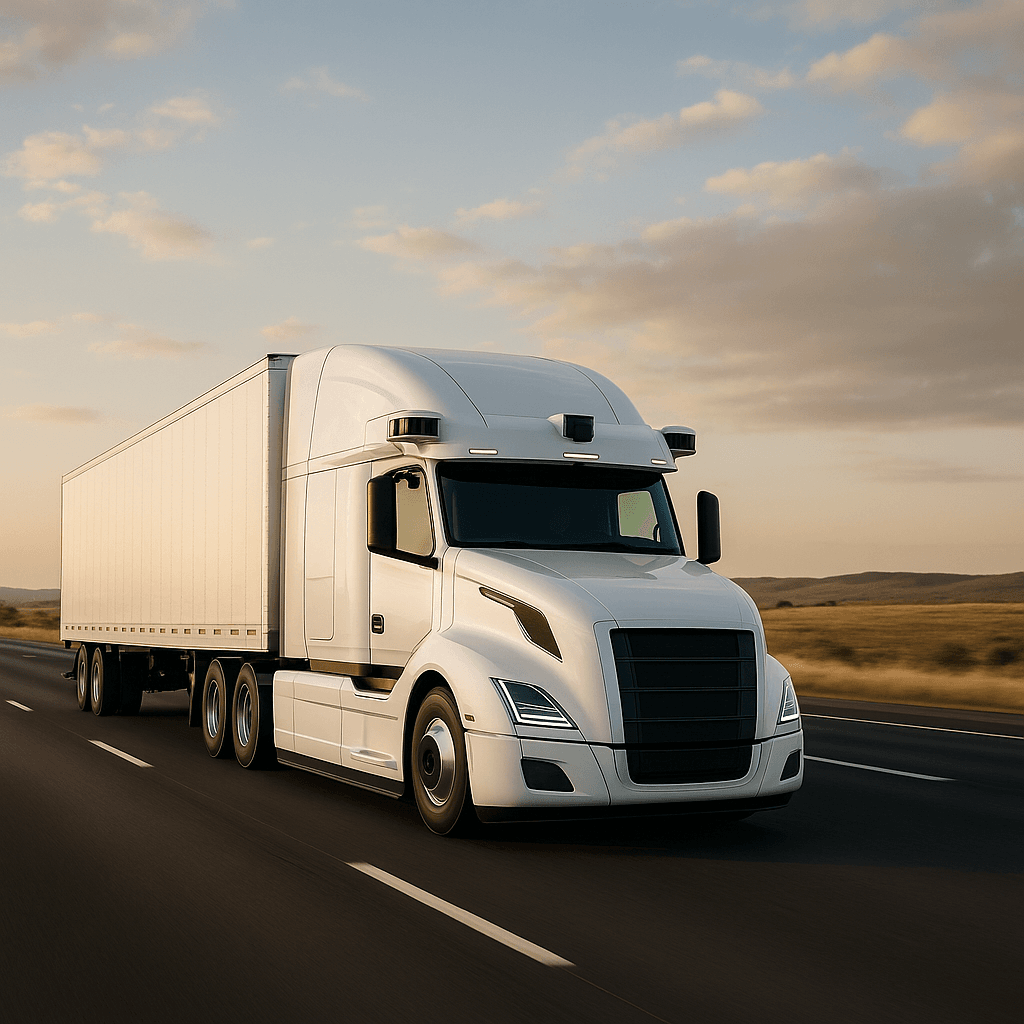Canadian AI startup Waabi just unveiled its fully autonomous truck built with Volvo, throwing down the gauntlet in the race to eliminate human drivers from commercial trucking. At TechCrunch Disrupt, CEO Raquel Urtasun claimed her company could be first to market with truly driverless trucks - no safety observers required - taking a direct shot at competitor Aurora's current approach.
Waabi just dropped what might be the trucking industry's biggest mic drop moment. The Toronto-based startup unveiled its Volvo VNL Autonomous truck at TechCrunch Disrupt Tuesday, claiming it's ready to put fully driverless trucks on American highways without human safety observers - something no competitor has achieved at commercial scale. CEO Raquel Urtasun didn't mince words when taking aim at rival Aurora: "We have the potential to be the first to commercialize self-driving trucks without a human safety driver or observer." That's a direct shot at Aurora's current Dallas-Houston route, which still requires human monitors despite launching commercial operations earlier this year. The unveiling caps off eight months of development since Waabi announced its partnership with Volvo Autonomous Solutions in February. But this isn't just another startup making bold claims - Volvo has serious skin in the game, having invested in Waabi's $200 million Series B round this year through its venture capital arm. The relationship dates back to 2023 when Volvo Group Venture Capital first backed the company. What makes this announcement particularly interesting is the competitive dynamics at play. Aurora has the same hardware foundation - they're both using Volvo's VNL platform - but Waabi claims its AI approach gives it the edge. "We can drive in generalized surface streets across right now in Texas, and you will be able to see us across the entire U.S. over the next few years," Urtasun told the Disrupt audience. Aurora announced Tuesday it's expanding service to El Paso, but still with human observers on board. That's where Waabi sees its opening. The company's "Waabi Driver" is built as an end-to-end AI model rather than the traditional modular approach most competitors use. This architecture, Urtasun argues, enables better generalization across different road conditions - from interstate highways to complex urban surface streets. "Volvo VNL has been built from the ground up for the redundancies so that you can remove the human driver," she explained, highlighting the truck's factory-integrated safety systems. The technical specs matter here. Waabi's sensor suite and compute stack are designed to be lightweight and factory-integrable, addressing one of the industry's biggest scaling challenges. Traditional retrofitting approaches are expensive and difficult to standardize across fleets. But the real test isn't the technology demo - it's commercialization. The autonomous trucking market has been littered with ambitious promises that didn't deliver. Urtasun brings credibility as former chief scientist at Uber ATG before launching Waabi in 2021, but market timing remains everything in this space. The competitive pressure is intensifying rapidly. collapsed spectacularly after regulatory issues, while and other players are still working toward commercial deployment. Meanwhile, traditional trucking companies are watching nervously as driver shortages continue plaguing the industry. What's particularly notable is how quickly this partnership moved from investment to product unveiling. Volvo's 2023 strategic investment through its venture arm created the foundation, but having a working autonomous truck less than a year after announcing the technical partnership suggests both companies were moving fast. The proof will come in real-world deployment. Waabi says it's already operating in Texas and plans nationwide expansion, but scaling autonomous trucking requires regulatory approval, insurance frameworks, and fleet partner adoption - none of which happen overnight. The timing couldn't be better for making bold claims, though, with Aurora's expansion announcement creating the perfect backdrop for competitive positioning.











